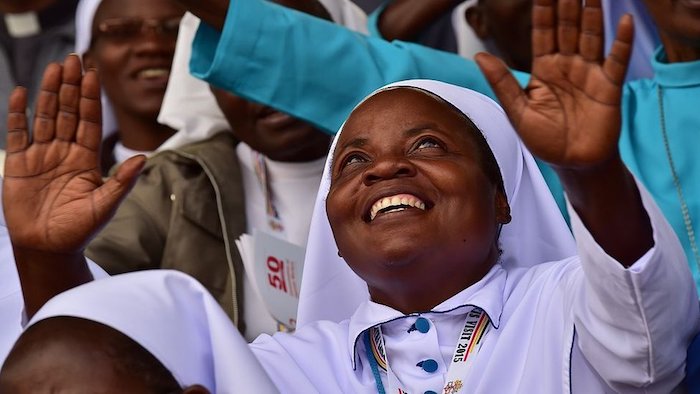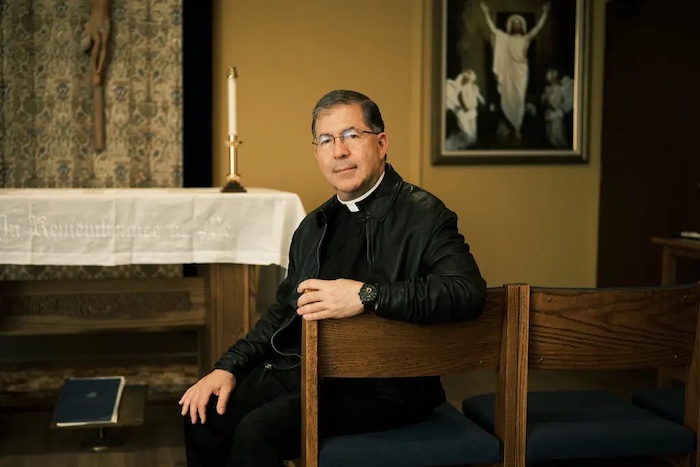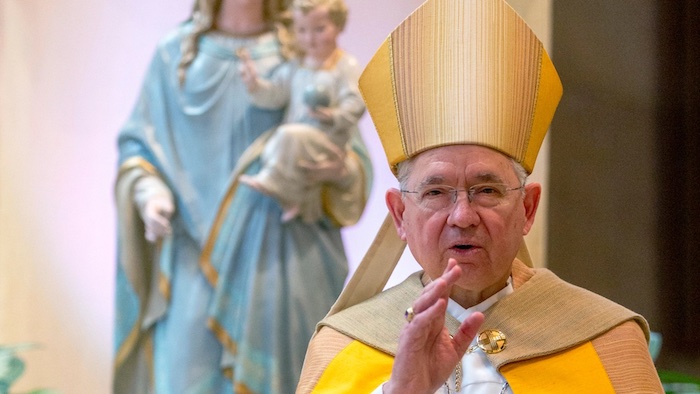— Does the continent represent the future of Catholicism?

By David Smith
As milestones go, the recent sight of three leading men of God together in Africa was quite something — a rare chance for Christian leaders to spread the word and challenge rivals for hearts and minds.
Pope Francis and the Vatican media machine might have led the way, but alongside him went Justin Welby, Archbishop of Canterbury, and the Moderator of the Church of Scotland, Iain Greenshields. They shared the Papal plane on the way home with the kind of bonhomie and mutual understanding that highlights the importance of Africa in the contest to be the world’s leading faith.
There they were, the three of them, in the war zone of South Sudan, the Christian stronghold that broke away from the Muslim north amid terrible conflict. Today that newest of countries represents a small but symbolically important piece of the continent’s religious jigsaw that will see Christianity grow by more than 40 per cent, the hierarchy believes, by 2050, and so ensure their faith will continue to stay just ahead of Islam in global per centages.
Some walked for days just to see and hear him
Ahead of that historic appearance of a Christian triumvirate, Pope Francis had spent days in Congo, sub-Saharan Africa’s largest country, home to more than 100 million, half of them Catholic, and the crucible of a conflict that has claimed more than five million lives, displacing millions more. It was a grim sign of the continuing murder and mayhem that the Pope had to cancel a trip to Eastern Congo, the epicentre of the war, because of fighting near the regional capital of Goma.
At his main mass in the capital, Kinshasa, more than a million Catholics joined him, some having walked for days just to see and hear him. Everywhere he went, thousands lined the streets and overpasses to glimpse the man many Congolese call simply “Our Father.” Francis, deeply moved, found the voice that has eluded him in recent times.
“This country, so immense and full of life, this diaphragm of Africa, struck by such violence like a blow to the stomach, has seemed for some time to be gasping for breath,” he told followers, clearly energised by the sight of so many worshippers. “But you are a diamond, believe in yourselves, and your future.”
The numbers do tell. According to the Vatican’s news agency, Africa accounts for 265 million members of the world’s 1.3 billion Catholics — 20 per cent, and growing fast. The Anglican church is smaller but with significant followers in those countries with a footprint of the British empire: Nigeria, Uganda, Kenya, Tanzania, South Africa (think the late Desmond Tutu)
“Africa offers Christianity such opportunity, born out of tragedy and suffering maybe, but such potential,” to quote one of the Pope’s advisers, noting that the Pontiff insisted on making the trip despite poor health of late and being now wheelchair-bound. “Francis, better than anyone, knows where we have lost ground, and where we need to work.”
It is ironic to consider it but, yes, the Argentinian Pope does indeed know where Catholicism has seen the faithful flee elsewhere. In Latin America, once the vanguard of his own Jesuit mission and home to the largest Catholic country on the planet, Brazil, Church leaders acknowledge that tens of millions have been lost to rivals, especially the Evangelical and Pentecostal faiths.
Even in the Pope’s beloved Argentina, you can see the exodus and not just in the major cities, Buenos Aires, Cordoba, Rosario. In the foothills of the Andes, in conservative, rural Mendoza, the Catholic church is often half-empty. In contrast the Evangelical arena, often a large, multi-purpose room on the main street, or a schoolroom not used on the weekends, can be packed to overflowing — with the devout outside in sizable numbers.
“Ours is Christianity that speaks to people’s needs, and people’s lives,” says Evangelical minister Jose Hernandez in Mendoza, pinpointing how Rome’s hard line on “social issues” (code for contraception, abortion, and the role of women in the Church) especially during the long years of the Polish Pope, John Paul the Second, opened the floodgates. “Ordinary people have flocked to us.”
The religious battle for Africa has been joined
Fascinatingly, the attempts of Pope Francis to soften the conservative line of his predecessors — taking for example such a relaxed view of homosexuality (“who am I to judge?” he says, “they are children of God too”) — has produced blowback, the likes of which Christianity may not have seen before. Such appeasement seems to have come too late for his Church in Latin America — and in Africa, his open voice on gay life is the seed of clear dispute between his Vatican and some fiercely traditional Bishops, let alone communities, on the ground in the likes of Congo and South Sudan.
“The Pope can have his view on homosexuality, and we have ours,” said one Catholic Bishop in attendance as the Pope celebrated that mega-mass in Kinshasa. “It is a sin.” Justin Welby and the Anglican church heard likewise in South Sudan from their flock. “Better to have two wives than to be gay or lesbian,” according to one Protestant Archbishop there.
The religious battle for Africa has been joined, and Christianity, losing out elsewhere in the Global South, sees the continent as the go-to arena tomorrow. So much so that inside the Vatican — where I was once a young correspondent back in the day when they dared to elect a Pole as Pope — they say the next Pontiff could well be an African.
Complete Article ↪HERE↩!




